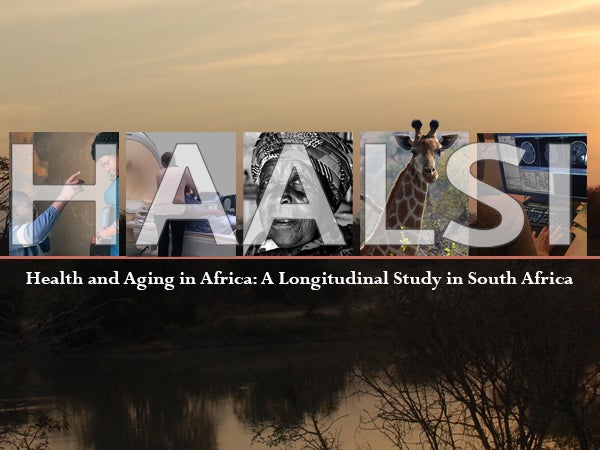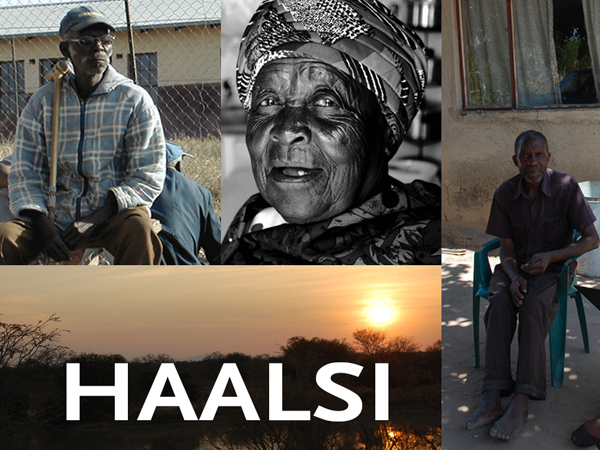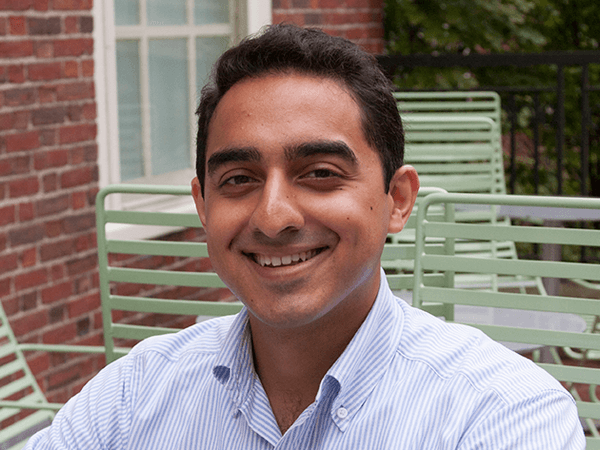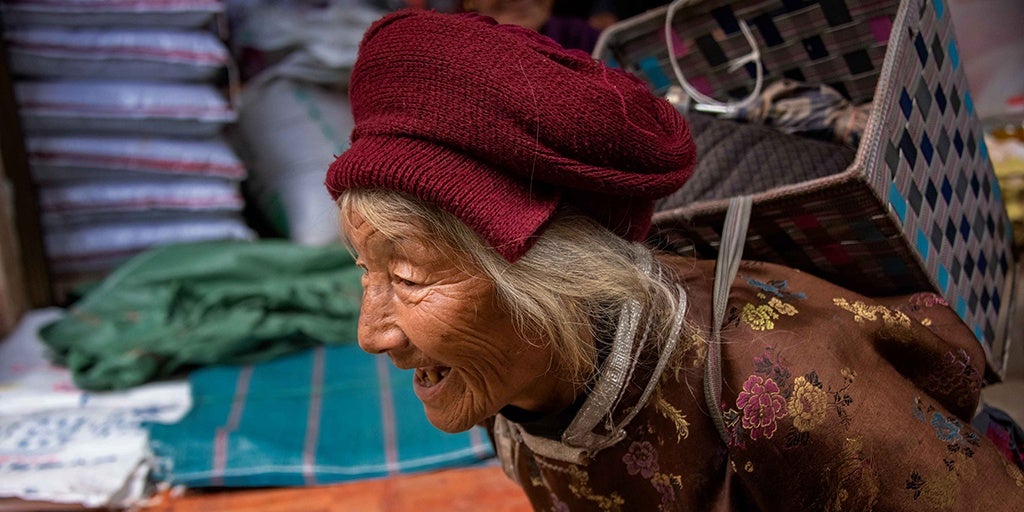Scientists affiliated with Health and Aging in Africa: A Longitudinal Study in South Africa (HAALSI) have found that telomere length is associated with health and aging biomarkers (e.g., age, mortality, blood pressure) in much the same way that they are associated with these biomarkers in more frequently studied high-income countries.
Decade-long research project that explores aging in South Africa receives NIH/NIA funding for new waves & national expansion, with special focus on cognitive health
Researchers from The Harvard Center for Population and Development Studies (HCPDS), the Harvard T.H. Chan School of Public Health, the University of the Witwatersrand, and the University of Cape Town have been awarded 27 million dollars from the National Institute on Aging (NIA) to further the collaborative program project Health and Aging in Africa: A Longitudinal Study in South Africa (HAALSI). This is the largest grant to be administered through…
Diagnosing dementia in rural South Africa using online consensus; cash transfers at earlier age in South Africa to support cognitive health later on; paving the way with promise for genomic studies on cognition in Africa
Three studies by HAALSI researchers based on a rapidly aging population in rural South Africa are contributing to the much-needed scientific literature on global cognitive aging. A study published in Alzheimer’s & Dementia: Diagnosis, Assessment & Disease Monitoring found that a multidisciplinary, web-based consensus conference approach for diagnosing cognitive impairment and dementia in rural South Africa was feasible, and identified the key factors responsible for diagnostic variability among raters. In…
HAALSI study finds improvement in hypertension control in aging South African population
Researchers affiliated with the Health and Aging in Africa: A Longitudinal Study of an INDEPTH Community in South Africa (HAALSI) project have published a study on an aging population in rural South Africa in which more than half suffer from hypertension. Findings reveal that there have been improvements in addressing the condition in every phase of the treatment “cascade” (i.e., awareness, treatment and control).
If this is to be the “Decade of Healthy Ageing,” treatments and support for Alzheimer’s disease and related dementias (ADRDs) need to scale up now
The United Nations has declared that we are now in the “UN Decade of Healthy Ageing” (2021-2030) as a way to address the challenges that accompany increasing global life expectancy. Two researchers affiliated with the Harvard Pop Center (David Bloom and Benjamin Seligman) are among the authors of this piece published on voxeu.org that cites the rapidly developed COVID-19 vaccine as proof that complex health crises can be successfully tackled.…
Study projections indicate that middle-income countries will need to significantly expand health care services to keep up with aging population
Recent Harvard Bell Fellow Nikkil Sudharsanan, PhD, and a colleague have authored a paper published in the journal Hypertension that estimates that by 2050 demographic changes alone will increase the number of adults in Brazil, China, India, Indonesia, Mexico and South Africa who will be in need of hypertension care by 319.7 million.
In China, the “oldest-old” urban dwellers are experiencing less disability and, for some, longer life expectancy
Collin F. Payne, PhD, a fellow in a recent cohort of our Bell Postdoctoral Fellows, is an author on a paper published in BMC Medicine that examines both life expectancy and disability-free life expectancy among those cohorts born 1919–1928 and 1909–1918 in China. The findings could be instrumental in helping shape policy and programs in this country, which is one of the most rapidly aging societies in the world. Photo: Rod…
How can we evaluate how well a country is handling the demographic shift to becoming an aging society?
A team of researchers, including collaborator and Harvard Pop Center Director Lisa Berkman, PhD, has developed a multidimensional index that measures how well a country is handling the transition to having an increasingly larger proportion of older adults by evaluating status across five domains. The results, published in PNAS, indicate that while the U.S. scored well in the areas of productivity and engagement, the country ranked near the bottom in equity.
In South Africa, when HIV testing is not always possible, is self-reported status a viable, reliable alternative?
A team of researchers affiliated with the Harvard Pop Center and the Health and Aging in Africa: A Longitudinal Study of an INDEPTH Community in South Africa (HAALSI) has found that the self-reported HIV status of older adults was accurate enough that it could be considered as a routine first step to establish HIV status when testing is not possible. The study was published in JIAS (Journal of the International Aids…
HAALSI website focuses on health of aging population of South African community
In Sub-Saharan Africa, the overall gains in life expectancy due to socioeconomic and health improvements—as well as the scale-up of antiretroviral treatment (ART)—have meant that adults are now experiencing the onset of cardiovascular and metabolic diseases at unforeseen levels, with projections of rates to more than double over the next 20 years. Funded by a grant from the National Institute on Aging, the HAALSI (Health and Aging in Africa: A Longitudinal…
Continue reading “HAALSI website focuses on health of aging population of South African community”




